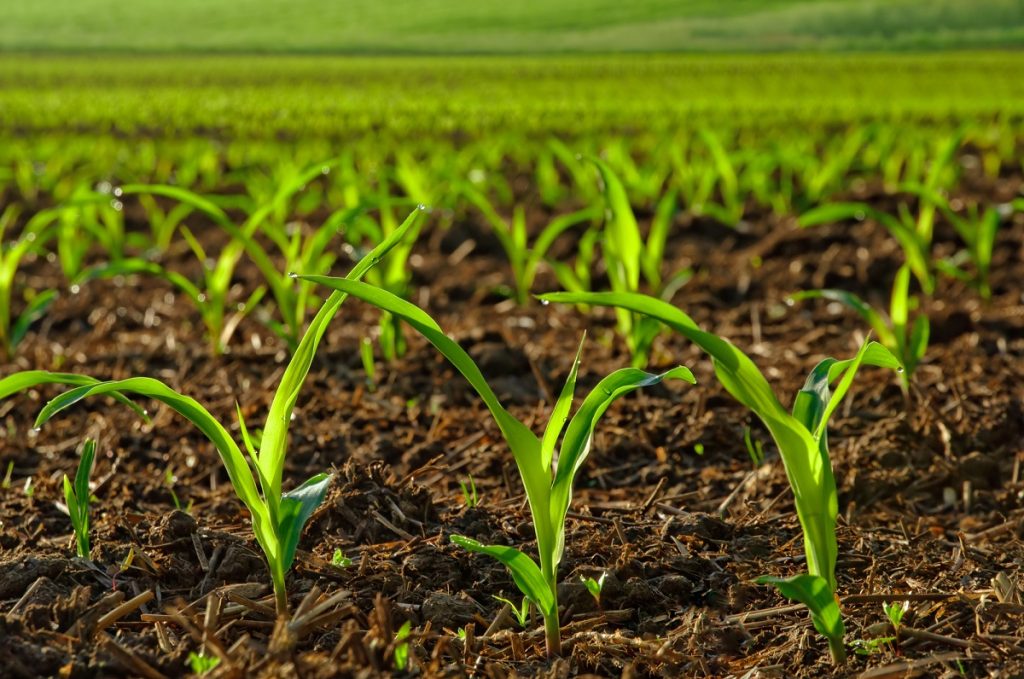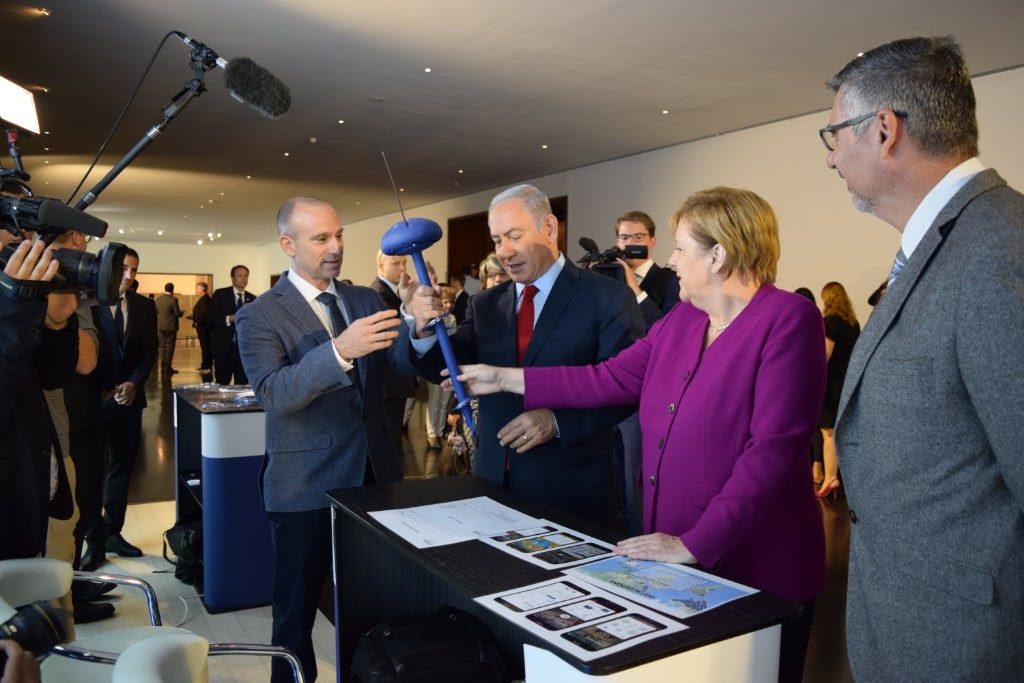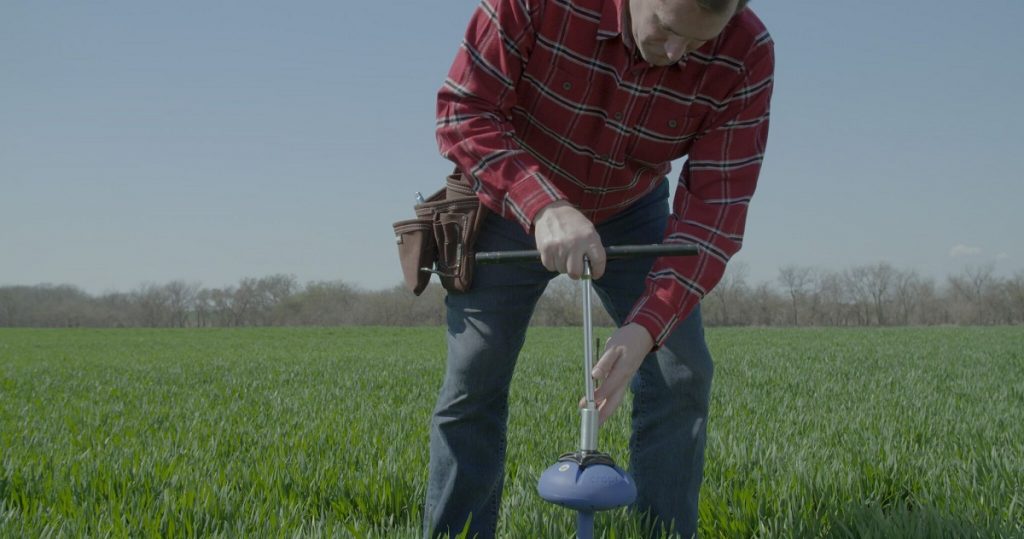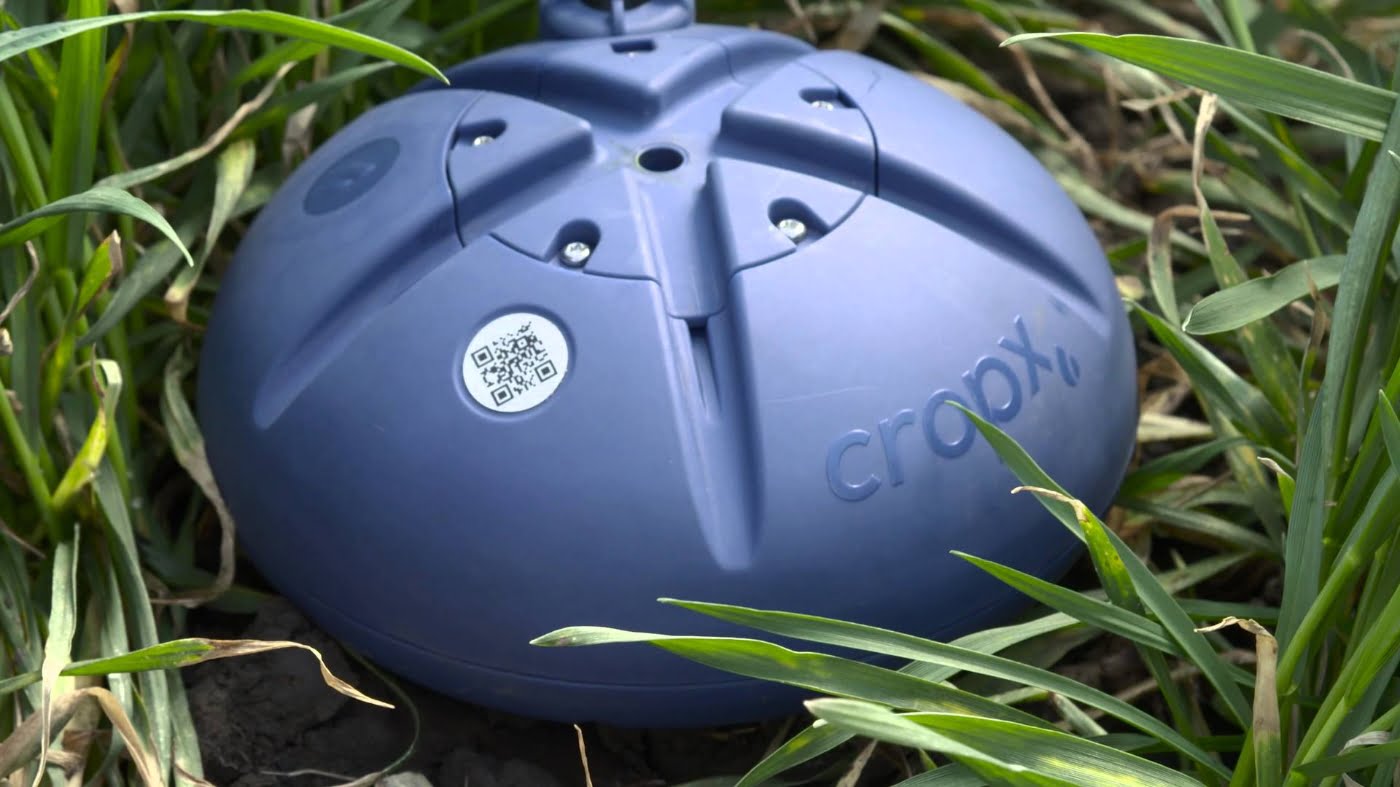As a country made up of more than 60 percent desert and with little annual rainfall, Israel has over the years defied expectations to become a leader in water and precision agriculture tech, harnessing sensors, drones, robotics, GPS tech, autonomous vehicles, and data science to control and manage farms and livestock.
In just 70 years, Israel has also seen the establishment of some 750 local food tech and agritech startups dealing with crop and water supervision, alternative protein, and food safety – the majority set up over the past decade.
But few agritech startups go beyond the satellite imagery and “beneath the soil” to provide insights on crop and irrigation strategy.
One such company is CropX, among just two percent of agritech intel firms that actually “break ground” for their insights, harnessing the power of big data, machine learning and a cutting-edge cloud-based software in the soil to boost agricultural output from the ground up. CropX CEO Tomer Tzach says 98 percent of agricultural analytics companies only collect data above the soil.
Smart farming standout
Founded in 2014, CropX joined the smart farming evolution by using IoT and analytics to improve farming practices and “give the field a voice.”
In May, the analytics innovator unveiled its latest soil intelligence platform, combining cloud-based analytics software and advanced soil sensor technology that integrates weather data and immediate anomaly detection alerting farmers to issues that affect the soil.
Now offering three updated versions of its unique spiral soil sensor, Tzach says CropX is ahead of the game in a new era of powerful smart sensor tech as “the only sensor to mass market” with “proven results, traction, and customers” driven by global partnerships.
The company already has a strong standing in the United States, where it has offered solutions to drought and water shortage in states like California and Arizona.
“Our system can tell farmers when they need to water and when they don’t,” Tzach tells NoCamels, “we offer applicable, cost effective solutions across huge acreages.”
CropX recently completed a successful large-scale experiment in Arizona across 114 acres, where its technology was tested on half of an alfalfa field. The other part was irrigated using traditional practices. Results showed 40 percent savings in water, without a negative effect on the crop yield. Additionally, the growing cycle was accelerated, allowing for a potential increase in annual production of 10 percent, the company says.
In the US, CropX is also known for providing solutions for commodity crops such as corn, potatoes, and wheat. This is important, Tzach says, as CropX is currently one of the only soil sensors to cultivate important insights about commodity crops” which can be easily traded, stored for a long time, and grown in large numbers.

An illustrative photo of a corn field. Photo via Deposit Photos
In another significant development for the company, CropX has also recently partnered with a subsidiary of one of the largest agriculture distributors in Australia. “This is an exciting milestone in our strategy to work with strategic partners and expand our footprint outside the US, especially in the Southern Hemisphere,” Tzach wrote in a newsletter sent to the company’s network of international investors.
In May, ICL, a leading global specialty minerals and chemicals company based in Tel Aviv also announced a strategic partnership and investment with CropX – the company’s first collaboration with Israel’s startup community in the field of precision agriculture.
Developments in Germany
Sign up for our free weekly newsletter
SubscribeCropX recently presented its unique technology to German Chancellor Angela Merkel on her state visit to Israel last week. The startup was one of few tapped by the Israeli government to showcase its solutions at an exhibit at the Israel Museum in Jerusalem in front of Merkel, Israeli Minister of Economy and Industry Eli Cohen, Israeli Innovation Authority CEO Aharon Aharon, German Federal Minister for Economic Affairs and Energy Peter Altmaier, and SAP CEO Bill McDermott.
“CropX is a solution that’s both hardware and software,” Tzach, an experienced Israeli Air Force pilot, former investor, and four-time CEO, said during the presentation.
“On the hardware side, we have the soil sensor that farmers put in the ground and it transmits information from the soil to the cloud and into the software piece, which is an app on their phone,” he explained. “So they get this by mail, install this by themselves in just five minutes and almost instantly in just a matter of a few days they know more about their soil then they’ve ever known in the past.”
CropX was the only agritech startup to showcase its tech, among other innovative companies that included Israel’s Pixellot, Rapid Medical, and SpacePharma R&D and Germany’s Brainlab AG and Merck.
SEE ALSO: On The Menu: 12 Food-Agri Tech Startups To Watch In 2018
“I was excited to see how aware [Merkel] was on the details of the dairy industry in Europe,” Tzach tells NoCamels, noting that he briefly addressed CropX’s solutions for the industry’s dairy issues in dealing with cattle manure management in regions like Ireland and Germany.
There is so much livestock in those regions, he says, that its manure, instead of acting a fertilizer in the soil, will “run off” with the rain and end up in drinking water or leave the soil in drainage water and become an environmental pollutant.
“One of our solutions is to measure both the water and the nitrate in the ground and be able to understand where the nitrate is going. Is it too much? Should we move the cows? There are lots of questions we can provide answers to with our sensors,” Tzach says, “Because the CropX system is very affordable, connects from everywhere, and it’s self-installed, so it’s very scalable. It’s a great solution for areas that need mass deployment.”

CropX CEO Tomer Tzach presents the company’s soil sensor to Israeli Prime Minister Benjamin Netanyahu and German Chancellor Angela Merkel. Courtesy
Merkel is “well aware of the issues of the dairy industry,” Tzach adds. “The minute I started speaking about the environmental issues caused by the dairy industry, which are very big in the EU right now…she knew exactly what I was talking about. Germany has the largest dairy production in Europe. It’s reaching a point where they can’t grow it anymore, without addressing the environmental issue.”
Since the presentation last week, Tzach says CropX as already followed up with the delegation on many of the business development topics discussed at the exhibit.
SEE ALSO: Israeli Startup Launches AI-Powered Alert App To Help Farmers Save Crops From Disease, Pests
The Netanya-based firm has only recently begun to hit the European market, Tzach says.
A declaration of intent between Israel’s Ministry of Economy and Industry and the German Ministry of Education and Research on European and bilateral cooperation on research and development and innovation reached at the roundtable after the exhibit is set to facilitate further projects.
Related posts

Editors’ & Readers’ Choice: 10 Favorite NoCamels Articles

Forward Facing: What Does The Future Hold For Israeli High-Tech?

Impact Innovation: Israeli Startups That Could Shape Our Future





Facebook comments